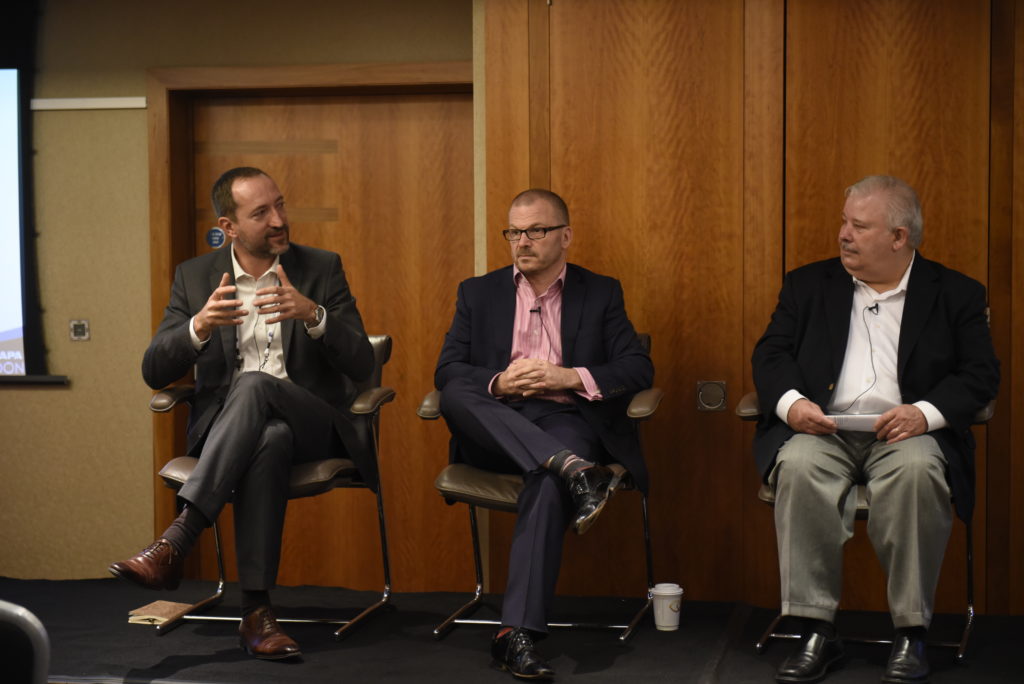By Olivier Benoit, Senior Director and Practice Area Leader, Air, Advito
On Friday, Oct. 13, I was in London for the ACTE-CAPA Global Summit 2017. I was invited to a panel covering “Behaviours Driving Air Ancillary Booking Decisions” where I joined Bruce Finch, senior director of Global Travel for Autodesk Inc., and Simon Ferguson, vice president and managing director of Northern Europe for Travelport. Our session was moderated by Lori O’Connell, senior director of Travel & Meetings for PricewaterhouseCoopers and member of ACTE Board of Directors.
Bruce Finch shared a recent study published by CarTrawler that placed an estimated value of more than USD $67 billion on annual ancillary revenue for 2016, up from USD $22 billion in 2010. Yet, for many corporate travel programs, ancillaries remain a challenging area to manage. Our panel looked at strategies to evaluate and address ancillary spend in order to guide travelers’ buying behaviors and keep spend aligned with their company’s priorities.

Today, ancillaries are as important to negotiate as pricing and should no longer be a secondary topic. Airlines are increasingly using ancillaries to adjust their margins. It is legitimate for airlines to monetize its services. In addition to improving their margins, which have been the lowest among air transportation players for a long time, ancillaries are a way for airlines to differentiate themselves in terms of services provided.
The buyer’s perspective
Cost control remains a buyer’s first priority, and ancillaries are an added cost. However, buyers need to find a balance between this cost and the traveler productivity and satisfaction that come with onboard wifi, priority boarding, extra bags, etc. Companies should have a clearly defined travel policy in place that identifies acceptable ancillaries and should actively communicate this policy to its travelers. With this as a starting point, buyers can work with its TMC and technology partners to set up the booking tools to simplify the booking process. This will help keep travelers in policy.
From there, traveler behavior can be monitored (and influenced) by tracking spend through multiple data sources like T&E reimbursements, company credit card statements, TMC and carrier reports. With this information, buyers can negotiate with airlines to leverage the total value of their program, which should include the ancillary spend. Specifically, buyers should negotiate for the ancillary services to be included in the base fare, a fund that can be used to purchase ancillary services or discounts on ancillary costs.
The opportunity
Now is the time to have these negotiations. There should be a sense of urgency in the buyer community with airlines working on personalized offers more and more. This is an opportunity for buyers to share their requirements – what should and should not be included in its carrier packages. Buyers can use this as an opportunity to stop paying for services they do not want or that their travelers do not necessarily need. Buyers should not leave the airlines to decide on their behalf.
The challenge
There is no industry standard for distributing ancillaries. While some services are available in a GDS or booking tools, others are only distributed in the direct airline channel. It will vary by airline, booking tool, GDS and geography. Airlines are getting creative in coming up with new ancillary fees. It becomes difficult to know what is or is not included in an airline ticket. Travelers are offered more options than ever, making the booking/purchasing process more time consuming and less effective. Tracking ancillary spend is and will continue to be the most critical challenge.
For the latest perspectives on corporate air travel, be sure to subscribe to Outfront, the Advito blog.
About Advito Air
Advito’s experts drill deep into your travel program data and develop innovative air spend management strategies that will get you the highest returns, guaranteed. The difference with Advito is our holistic approach that looks for savings beyond just sourcing. Our team includes renowned experts in technology, policy, traveler behavior and digital marketing. Contact our Air team to learn more.
